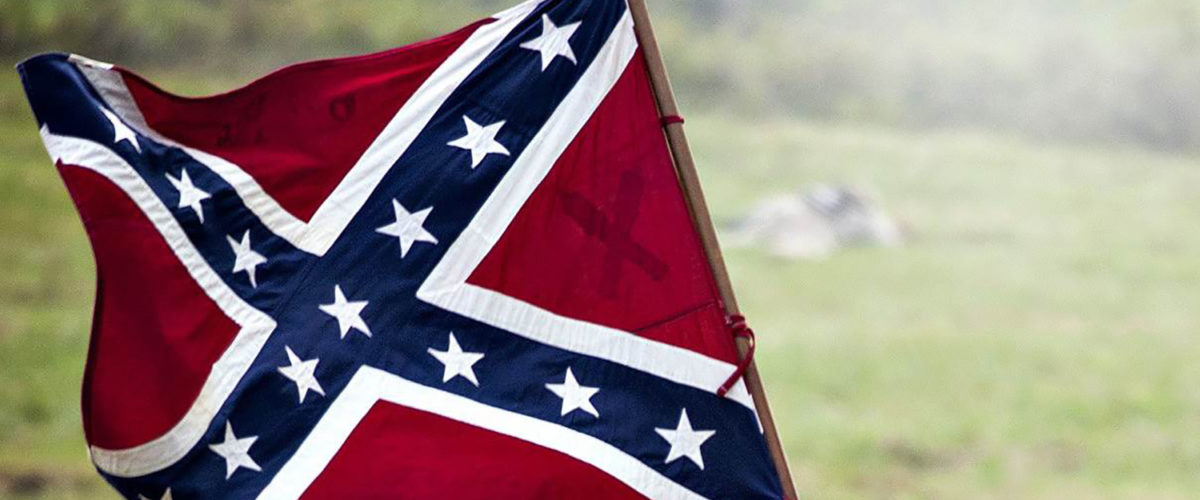The Baptist State Convention of North Carolina echoed the Southern Baptist Convention in denouncing racism in a resolution adopted at the state convention’s 2017 annual meeting Nov. 6-7 in Greensboro, N.C.
North Carolina Baptists stopped short, however, of endorsing the national body’s call to refrain from public displays of the Confederate flag or statements by SBC leaders supporting the removal of Civil War monuments.
The North Carolina resolution affirmed “sentiments” of a highly publicized resolution “On The Anti-Gospel Of Alt-Right White Supremacy” adopted by Southern Baptists this summer in Phoenix, Ariz.
According to the Biblical Recorder, the state convention newspaper, messengers voted narrowly to remove a phrase that would have also affirmed the SBC resolution’s “content,” after a messenger objected to a “whereas” portion of that statement that cites a previous SBC resolution urging Christians “to discontinue the display of the Confederate battle flag.”
Phil Addison, pastor of Friendship Baptist Church in Bunnlevel, N.C., said he does not own a Confederate flag and would not fly one, because some fellow Christians find it offensive.
“But what happens when the American flag becomes so hated that it offends my brother?” Addison asked, mentioning anti-fascist and Black Lives Matter groups.
Messengers rejected an amendment by Ray Barnhill, pastor of Union Missionary Baptist Church in Rocky Mount, N.C., attempting to remove a section of the resolution acknowledging “the preservation of history is critically important for a nation.”
According to the Biblical Recorder, the phrase was intended as a reference to recent actions over Confederate monuments and statues such as one this summer in Durham, N.C., where protesters, inspired by earlier violent riots over removal of a Robert E. Lee statue in Charlottesville, Va., took it upon themselves to topple a statue on public property honoring “the boys who wore the gray.”
In September SBC President Steve Gaines joined black and white clergy in Memphis, Tenn., in a letter asking the state to allow local officials to relocate a statue of Confederate general Nathan Bedford Forrest, infamous, among other things, for membership in the Ku Klux Klan.
Prior to the annual meeting, members of the North Carolina Baptist resolutions committee explained their intent in bringing an anti-racism message before the convention in a statement released through the Baptist state convention’s communications office.
“The committee consists of men that love North Carolina and men that love these United States of America, that respect history and value clear teaching about the history of nature — both our nation’s successes and our failures,” said the statement published in the Biblical Recorder Oct. 16.
“However, as citizens of heaven, every single member of the committee understands the mission of God to be witnesses in Jerusalem, Judea, Samaria and to the ends of the earth. The expectation of our Lord, expressed in Acts 1:8, includes not only being witnesses in every geographical area, but among every people group, as well,” the committee continued.
“As believers, our ultimate allegiance and obedience is to the Lord Jesus and His Kingdom. Just as Paul addressed the churches of Galatia concerning the cultural and historical practice of circumcision, we too believe that we should not allow anything in our culture to hinder our witness of the love and grace of Jesus.”
Another resolution passed by North Carolina Baptists affirmed “God’s good design that gender identity is determined by biological sex and not by one’s self-perception” and declared the Bible’s definition of marriage as “being exclusively between one man and one woman.”
The sexuality resolution described God’s purpose for marriage as “ultimately for benefit of mankind, especially as it relates to procreation and the establishment of strong families,” while pledging to “pray for our neighbors who identify themselves as homosexual and transgender, to minister to them with Christ’s love, and, as they repent, to help them grow as disciples of Jesus Christ.”



